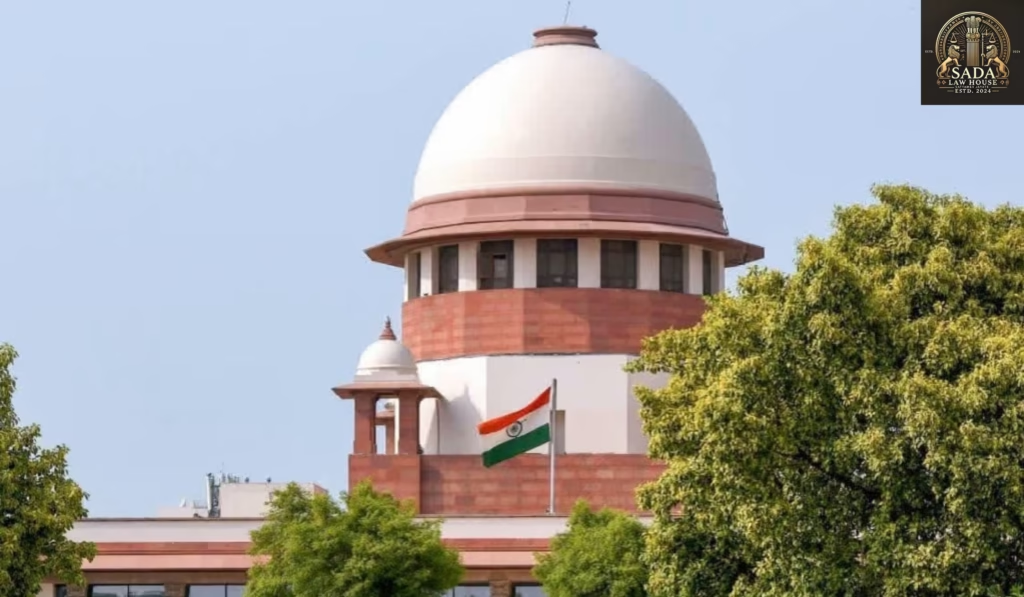Supreme Court Clarifies Res Judicata Principle Applies to Various Phases of Identical Proceedings
Trending Today Supreme Court Clarifies Res Judicata Principle Applies to Various Phases of Identical Proceedings LEGAL JOB OPPORTUNITY AT JADON LAW CHAMBERS Uttarakhand High Court Quashes Summons Against Patanjali and Baba Ramdev Over Misleading Ads Case LEGAL JOB OPPORTUNITY AT PINK SAMURA LEGAL JOB OPPORTUNITY AT AGROSTAR Madras High Court Seeks Centre’s Stand on Uniform Civil Code in Tamil Nadu INTERNSHIP OPPORTUNITY AT PEEPALCO Uttarakhand High Court Orders Urgent Action on Prison Remissions for Life-Term Convicts, Pushing Prison Reform Custodial Death of Somnath Suryawanshi: Bombay High Court Urged to Order Court-Monitored SIT Probe One Nation, One Election: A Constitutional Reform or Threat to India’s Federalism? Supreme Court Clarifies Res Judicata Principle Applies to Various Phases of Identical Proceedings Prabhat Kumar Biltoria 16 June 2025 Supreme Court rules that the res judicata principle applies to various phases of identical proceedings, reinforcing finality in civil litigation and barring repeated objections to impleadment under CPC Order I Rule 10. Understanding the Res Judicata Principle in Indian Civil Law The Supreme Court of India recently clarified that the res judicata principle is applicable not only across different proceedings but also at various phases within the same legal proceeding. This landmark judgment reinforces the finality of judicial decisions and prevents repeated litigation on the same issues. Key Supreme Court Judgment on Res Judicata and Impleadment Background of the Case In a significant ruling, a bench comprising Justices JB Pardiwala and R Mahadevan upheld the Kerala High Court’s decision that dismissed an application under Order I Rule 10 of the Civil Procedure Code (CPC). The application sought to object to the impleadment of a legal heir at a late stage, despite the opportunity to raise such objections earlier. Court’s Reasoning The Court emphasized that once the trial court issued an order to implead a legal heir after a proper inquiry under Order XII Rule 4 CPC, any subsequent objections were barred by the doctrine of constructive res judicata, as per Explanation IV, Section 11 CPC. This principle prohibits re-litigation of matters that have already been decided or could have been decided. The bench cited the precedent set in Bhanu Kumar Jain v. Archana Kumar (2005) 1 SCC 787, noting: “The principles of res judicata apply not only to two different proceedings but also to different stages of the same proceeding.” Finality of Impleadment Decision Since the appellant did not object or file a revision against the impleadment order earlier, the Court ruled that the matter had reached finality. Consequently, the later attempt to remove the appellant from the list of parties was rightly dismissed as barred by res judicata. What This Means for Civil Litigation in India Res Judicata Applies Within the Same Proceeding: This ruling confirms that objections or disputes cannot be raised repeatedly at different stages of the same case. Importance of Timely Objections: Parties must raise objections during the proper phase; failure to do so will bar them from raising the same issues later. Finality of Orders on Impleadment: Once a legal heir is impleaded following due inquiry, that decision is binding and cannot be contested repeatedly. Conclusion The Supreme Court’s decision strengthens the doctrine of res judicata, ensuring judicial efficiency by avoiding unnecessary delays and repetitive litigation. Litigants and legal practitioners should take note that timely objections and challenges are crucial to protect their rights during civil proceedings. Leave a Reply Cancel Reply Logged in as Sada Law. Edit your profile. Log out? Required fields are marked * Message* Case Laws Supreme Court Affirms Right to Anticipatory Bail Across States in Matrimonial Disputes: Priya Indoria v. State of Karnataka (2023) Sada Law • June 13, 2025 • Case law • No Comments Supreme Court Rules on Governor’s Limited Discretion to Withhold Assent and Summon Punjab Legislative Assembly | State of Punjab v. Principal Secretary (2023) Sada Law • June 13, 2025 • Case law • No Comments Supreme Court Judgment on Chargesheets: Not Public Documents, No Mandatory Online Upload by Investigating Agencies | Saurav Das v. Union of India (2023) Sada Law • June 13, 2025 • Case law • No Comments 1 2 3 … 5 Next »


